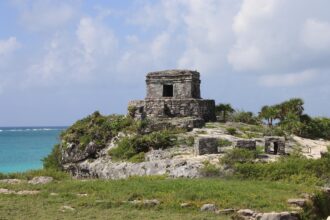Cultural Sensitivity in Tulum: Engaging with Nature and Local Communities
Understanding Cultural Sensitivity
Cultural sensitivity refers to the awareness and appreciation of different cultural contexts, practices, and beliefs. In a globally connected world, especially in tourist destinations like Tulum, Mexico, cultural sensitivity plays a significant role in fostering sustainable practices and respectful interactions between visitors and local communities. As Tulum experiences a surge in tourism, understanding cultural nuances is vital for creating a mutually beneficial relationship between travelers and residents.
The Importance of Respecting Local Traditions
Tulum is not just known for its beautiful beaches, cenotes, and ancient Mayan ruins; it is also home to vibrant local traditions and communities. Engaging respectfully with these communities allows visitors to appreciate the rich tapestry of Tulum’s cultural heritage. Tourists are encouraged to learn about local customs, culinary practices, and festivals rather than approach their stay solely as a consumer experience. This understanding enriches the travel experience while ensuring that local traditions are preserved and respected.
Engaging with Nature: An Integral Aspect of Tulum’s Culture
Tulum is celebrated for its stunning natural landscapes, ranging from turquoise beaches to lush jungles. Engaging with nature in a respectful manner is crucial for sustainability. Visitors should aim for responsible outdoor activities, such as snorkeling, hiking, or eco-tours, that adhere to environmental regulations. It’s essential to respect local wildlife and natural resources, which are integral to the livelihoods and cultural practices of many residents.
Responsible Tourism Practices
-
Choose Local Guides and Services: Opt for local tour guides when exploring Tulum’s cultural sites and natural wonders. Local guides provide authentic insights into the history and significance of places like the Tulum ruins or Sian Ka’an Biosphere Reserve. Supporting local businesses helps boost the economy and encourages the preservation of cultural heritage.
-
Avoid Overly Commercialized Activities: Engage in tourism that reflects authenticity. Refrain from participating in activities that exploit local cultures for commercial gain. For example, some tourists might opt for large resorts that offer an inauthentic experience, potentially diminishing the charm of the local culture.
- Educate Yourself Before You Visit: Before arriving in Tulum, take time to understand the local customs, history, and issues that may affect its communities. Familiarize yourself with key phrases in Spanish, consider learning about the Mayan culture, and appreciate local traditions such as Dia de los Muertos. This preparation will enhance your interactions with residents and demonstrate respect for their culture.
Engaging with Local Communities: Building Positive Relationships
To foster meaningful interactions with local communities in Tulum, consider the following approaches:
-
Participate in Community Events: Join in local festivals or community gatherings, such as traditional dances or markets. These events offer a unique opportunity to connect with residents and understand their cultural expressions.
-
Support Local Artisans: Purchase handmade crafts and goods from local artisans rather than mass-produced items. This not only supports the local economy but also honors the skills and traditions that are often passed down through generations.
- Volunteer and Contribute: If time allows, consider volunteering for local organizations or initiatives that focus on environmental conservation or community welfare. This active participation enables a deeper understanding of Tulum’s challenges and the ways that communities are working to address them.
Environmental Awareness: A Shared Responsibility
Tulum is at the forefront of environmental conservation efforts, serving as a reminder of the necessity for ecological respect and sustainability. Visitors are encouraged to practice eco-friendly habits, contributing to the protection of this unique landscape. Key practices include:
-
Plastic Reduction: One of the most pressing environmental issues in Tulum is plastic waste. Bring reusable water bottles, bags, and utensils to minimize plastic consumption.
-
Wildlife Protection: Respect local wildlife by maintaining a safe distance from animals and their habitats. Avoid disturbing nesting sites and adhere to guidelines set by conservation groups when participating in water activities.
- Sustainable Transportation: Utilize bikes or walk to explore Tulum, reducing carbon footprints and promoting a healthier lifestyle. Many areas within Tulum are accessible and encourage eco-friendly transportation.
The Role of Sustainable Accommodations
Choosing accommodations that practice sustainability can significantly impact Tulum’s cultural integrity. Eco-friendly hotels often integrate local elements into their designs, promote sustainable practices, and provide meaningful employment to community members. Look for lodgings that:
- Use renewable energy sources.
- Incorporate local architecture and materials.
- Maintain a commitment to reducing waste and conserving water.
Culinary Exploration: A Taste of Tradition
The gastronomy of Tulum reflects the diverse influences of its Mayan heritage and contemporary culinary trends. Engaging with local cuisine promotes cultural understanding and supports local farmers and chefs. Emphasize these practices when dining out:
-
Eat at Local Restaurants: Seek out local eateries where traditional dishes are prepared using indigenous ingredients. Meals prepared with love and care often retain their cultural significance and authenticity.
- Attend Cooking Classes: Engaging in culinary experiences like cooking classes offers insight into the local food culture and the significance of traditional ingredients, allowing travelers to forge deeper connections with the community.
Navigating Challenges
Tourism, while essential for Tulum’s economy, presents challenges that necessitate thoughtful navigation. Land use, rapid developments, and environmental concerns pose threats to the cultural and natural landscape. Engaging with local communities through respectful tourism helps mitigate these challenges.
Conclusion
Cultural sensitivity in Tulum enhances the travel experience, fosters authentic relationships, and promotes sustainable practices. By respecting local traditions, engaging positively with communities, and embracing nature, travelers can contribute to preserving Tulum’s rich heritage while facilitating the environment for future generations of visitors and locals alike.







